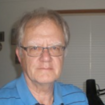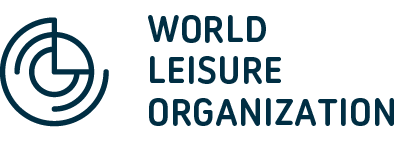Atara Sivan, Ph.D
Hong Kong Baptist University, Hong Kong
Leisure and Human Rights
Co-chairs


Tony (A.J) Veal
University of Technology Sydney
Goals
- To promote research and teaching on the topic of human rights and leisure, based on the principles set out in the WLO Charter for Leisure.
- To enhance the profile of leisure rights among governments, educators and their students, leisure policymakers, leisure practitioners, leisure researchers and the broad human rights movement.
Welcome
Welcome to the web-page of the WLO Leisure and Human Rights Special Interest Group. The group is open to all who are interested in the idea of leisure as a human right and how this might be promoted through research, education and practice.
Rationale
Leisure is a human right. This was established by the Universal Declaration of Human Rights (UDHR), which was adopted by the General Assembly of the newly formed United Nations in 1948. This right was further developed in the World Leisure Organisation’s Charter for Leisure, which was originally published in 2007 and in revised form in 2022. A copy can be found at: www.worldleisure.org/charter/
During the Charter process and subsequent research it was discovered that leisure rights, despite their UDHR status, had generally been neglected by governments, leisure policymakers, practitioners and researchers and the UN-led global human rights system. To address this situation, in 2022 the Leisure and Human Rights Special Interest Group was established by the Board of the WLO.
Recent Activities
In the period leading up to the establishment of the Special Interest Group and the first two years of its existence, its activities have been inter-mingled with the work of the World Leisure Academy in promoting the revised Charter for Leisure. This has involved a range of conference/webinar presentations and publication of a number of articles to promote the Charter and the idea of leisure rights as a topic of research interest. This work has been undertaken by the two co-chairs, Atara Sivan and Tony Veal. It is hoped that the next stage of the group’s work will involve many more colleagues.
- January 2022: ‘Leisure and human rights: A sociological perspective on the World Leisure Organisation’s Charter for Leisure’. Remote presentation to: British Sociological Association Leisure and Recreation Study Group: One- day on-line event: ‘Leisure for All: Formulating the Right to Leisure’. (A version of this presentation was published in the Annals of Leisure Research in 2022/24 (see below).
- October 2022: WLO webinar: Launch of the WLO Leisure and Human Rights Special Interest Group.
- November 2022: ‘Towards a New Culture Goal for the Sustainable Development Framework’. WLO webinar: discussion of outcomes of: UNESCO World Conference on Cultural Policies and Sustainable Development (MONDIACULT 2022)
- February 2023: ‘Leisure as a human right: the potential of the World Leisure Organisation Charter for Leisure’. Keynote presentation (remote) to the Academy of Leisure Sciences annual Research and Teaching Conference, 2023: ‘Leisure and Rights’, New Orleans, USA.
- February, 2023: ‘Just and favourable conditions of work: the leisure dimension’. Remote presentation to the WLO ‘side-event’ at the 61st Session of the UN Commission for Social Development, New York.
- December 2023: World Leisure Congress, Dunedin, New Zealand: a planned session was cancelled due to logistical problems.
- June 2024: Joint webinar by Leisure and Human Rights and Leisure Education Special Interest Groups, on “Leisure Education, Human Rights and Children’s Free Play”.
Events
August 2025 World Leisure Congress, Breda Netherlands:
- Congress presentation session: four presentations committed
- Open meeting of Leisure and Human Rights Special Interest Group: inaugural face-to-face meeting to discuss future plans of the group. All welcome.
Research
A leisure rights research agenda
A research agenda for leisure and human rights was proposed in articles on the topic in the World Leisure Journal in 2015 and 2022. These suggestions can be seen as drafts of a research agenda to be further developed by the Leisure and Human Rights Group over time. The issue of funding for implementation of all or parts of the agenda may be considered in due course. The current draft of the agenda is as follows:
- Examine the leisure-related content of individual member states’ periodic reports to the UN on progress with implementation the International Covenant on Economic, Social Cultural Rights (ICESCR).*
- Assess the place of leisure rights in individual national human rights arrangements, including national constitutions and human rights legislation and institutions.
- For nations which have not ratified the ICESCR: examine reasons for non-ratification and leisure implications.
- Examine adjudicated leisure-related cases of discrimination under national or regional (EU) anti-discrimination legislation.
- Explore ways in which leisure might be incorporated into human rights measurement and indexing frameworks.
- Examine the relationship between human right and social justice approaches to leisure and human well-being.
- Examine child exploitation and abuse in leisure contexts.
* The ICESCR is one of the UN legal treaties which establishes human rights as part of international law.
Research project: “Leisure rights: Holding governments to account”
This project can be seen as a contribution to implementing items 1 and 2 of the above research agenda.
Participation is invited in a collaborative research project to investigate the performance of individual nation states in regard to their respecting, protecting and fulfilling of human rights, particularly leisure rights, using a common conceptual and research framework. Individual state reports would be published as journal articles and also possibly on-line.
While the emphasis will be on member states of the United Nations, it is envisaged that the programme will accommodate contributions related to sub-national entities which have legislative powers in regard to human rights – for example, states/provinces in federal systems and arrangements such as the ‘countries’ of the UK.
Education and communication
Development of on-line teaching and research materials
The Charter for Leisure web-page (www.worldleisure.org/charter) includes the following support materials:
- Material for governments
- Educational materials
- Bibliography
These materials are currently in draft form and will be developed further over time under the auspices of the Leisure and Human Rights Special Interest Group.
Future activities
- Promotion of the Charter for Leisure internationally: programme to be devised.
- Encouragement of research papers on disciplinary aspects of leisure rights – e.g., Education; Public policy; Philosophy; Sociology.
- Regarding item (4) of the above research agenda on adjudicated human rights cases: an example, involving access by people with disabilities to cultural venues in Australia, is the study by Darcy and Taylor (Leisure Studies, 2009, 28(4)). Similar studies for other countries, social groups and activities could be encouraged.
- Discriminatory practices and leisure activity. The above Darcy and Taylor study is also an example of research concerned not just with adjudicated cases, and not just with leisure rights per se, but also with documenting examples of practices which infringe the rights of a group to fair treatment and access in leisure settings. A considerable body of research exists in a variety of settings (e.g., sport, tourism, mega-events, culture: see above-mentioned on-line Bibliography). This body of work could be reviewed and evaluated and gaps identified.
- Policy contributions. Governments at regional, national, state/provincial and local often call for submissions in regard to draft policies – e.g. sport, recreation of cultural strategic plans, or inquiries. Typically, such documents fail to make any reference to rights to leisure, sport or cultural participation. The Special Interest Group could become involved in encouraging submissions to these policy exercises. A data-based of such submissions could be created on the WLO website. An example is listed in the references above.
- Human rights, leisure and leisure studies. (Veal, A.J., World Leisure Journal, 2015, 57(4), 249-272).
- Human rights and citizenship rights for leisure, sport, tourism and culture (Veal, A.J., 2021, CABI Publishing).
- Leisure and human rights: the WLO Charter for Leisure: Past, present and future. (Sivan, A., & Veal, A.J., World Leisure Journal, 2022, 63(2), 133-140.
- International assessment of the right to leisure time. (Veal, A.J., World Leisure Journal, 2021, 63(2), 141-151).
- Sport and human rights: Assessing the performance of nation states in assuring the right to sport participation. (Veal, A.J. European Journal for Sport and Society, 2022, 20(2), 140-160).
- Holding governments to account for leisure rights: A research agenda. (Veal, A.J., & Sivan, A., World Leisure Journal, 2022, 64(3), 205-220).
- Cultural participation as a human right: Holding nation states to account. (Veal, A.J., International Journal of Cultural Policy, 2022, 29(6), 686-700).
- Veal, A.J. (2022). The Right to Cultural Participation: Submission in response to the call for input to the new Australian National Cultural Policy. (Veal, A.J., Office for the Arts, Australian Government, 2022).
- Leisure and human rights … or social justice? (Veal, A.J., Leisure Sciences, 2023, DOI: 10.1080/01490400.2023.2269202).
- A human rights approach to public policy and planning for leisure. In, M. Stodolska, D. Scott & T. Liechty (Eds), Leisure Matters: Exploring leisure in a changing world (pp. 341-350). (Veal, A.J., 2024, Venture Publishing).
- Leisure and human rights: A sociological perspective on the WLO Charter for Leisure. (Veal, A.J., & Sivan, A., Annals of Leisure Research, 2024, 27(3), 327-342 (Published on-line 2022).
- Artificial intelligence and leisure rights? (Veal, A.J., 2025, Leisure/Loisir). DOI: 10.1080/14927713.2025.2461765.
- Leisure and human rights (Veal, A.J., 2025, book in press, Palgrave Macmillan).
Registration of interest
To register your interest in becoming involved in the Leisure and Human Rights Special Interest Group, please email one of the co-chairs (details above).



